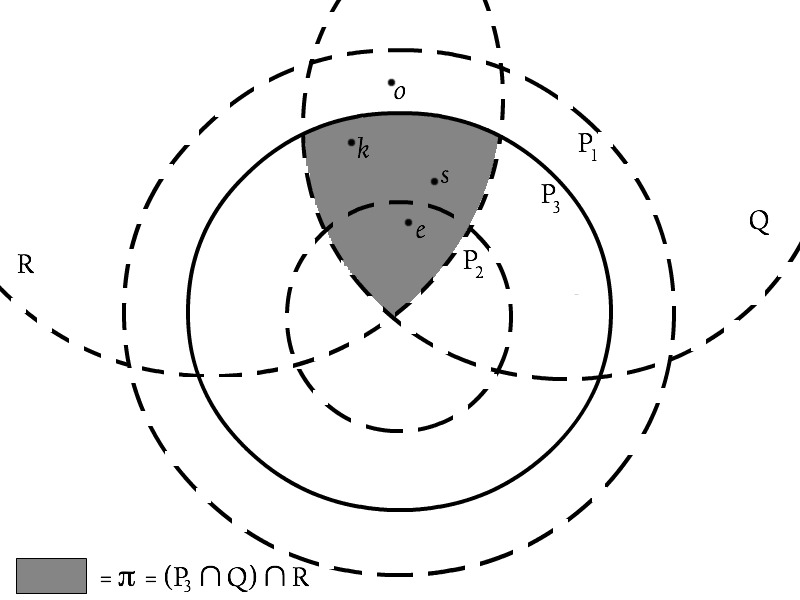The splash in the IP academy today is Mark Lemley’s posting last night of a somewhat polemical essay he has forthcoming in the UCLA Law Review. In it he criticizes a number of IP scholars–principally his former Berkeley colleague Rob Merges–for turning to moral-rights-based arguments in favor of strong intellectual property protections as mounting empirical evidence fails to present a compelling case for their preferred policies. The “faith-based” epithet is intentionally provocative, but the money graf comes at the end (footnotes omitted):
But if you are one of the faithful, I probably haven’t persuaded you. The psychology literature suggests that while people are willing to be corrected about factual inaccuracies—things they think are true but are not—they are essentially impervious to correction once the thing that turns out to be untrue crosses the line into a belief. And that leads me to the last—and, to me, most worrisome—problem with faith-based IP. If you are a true believer, we have nothing to say to each other. I don’t mean by that that I am giving up on you, deciding that you’re not worth my time to persuade. Rather, I mean that we simply cannot speak the same language. There is no principled way to compare one person’s claim to lost freedom to another’s claim to a right to ownership. Nor is there a way to weigh your claim of moral entitlement against evidence that the exercise of that right actually reduces creativity by others. Faith-based IP is at its base a religion and not a science because it does not admit the prospect of being proven wrong. The inevitable result of a move toward faith-based IP is that we will make policy based on our instincts without being able to engage in a meaningful conversation about the wisdom of that policy.
The accusation Mark is making here is of epistemic closure: that his antagonists are unwilling to entertain the possibility that they are mistaken, or to candidly weigh evidence that would tend to prove such a mistake. For an academic, them’s fightin’ words. And I think they’re unfortunate. I think the problem here is neither epistemic nor methodological; it’s political (in a non-pejorative sense).
I suspect we are dealing with two academic camps that simply value different things in different measure, as humans are wont to do. This disagreement might lead to the conclusion that the two sides “have nothing to say to each other.” But we might also conclude that the apparent absence of a shared language between moral theorists and consequentialists is precisely the type of problem academics in an applied discipline like law are particularly well-suited to solve, by looking beneath the language each camp uses to identify the ideas and disagreements underneath, and frame the issues in a language that both sides can engage on the merits. Indeed, that’s precisely what I’ve been working on lately.
For example: Mark takes a very strong position in his essay against “rights-talk” in IP: the idea that the market interventions IP law makes in favor of authors and inventors (and those in privity with them) are “some kind of prepolitical right to which inventors and creators are entitled” “regardless of the social cost that granting that right imposes” (pp. 10, 15). But I think very few if any IP scholars–even Rob–are willing to take such an extreme theoretical position in favor of strong IP rights. Rob’s foray into rights-based justification for IP rights is hardly the stuff of doctrinaire deontological theory; it is suffused with concerns over consequences that a strict Kantian might shrug off as either the rational implication of self-consistent moral duties or the sphere of practical reason rather than moral theory (take Rob’s entire chapter on what he calls “The Proportionality Principle,” for example).
I think it is clear that Rob thinks very highly of authors and inventors, and is willing to privilege them over users and consumers in many contexts where Mark would prefer to allow competition to do its consumer-friendly work at the expense of the professional creative class. But it isn’t clear that in choosing the language of Kant and Rawls to justify his preference, Rob is shutting himself off to evidence that would persuade him that any of Mark’s particular policy preferences are well-founded, any more than I think Mark would dismiss out of hand the idea that some of the benefits of creative activity might be overlooked in particular forms of cost-benefit analysis. Instead, I think these two scholars are simply disagreeing over the appropriate domain of empirical inquiry–chiefly with respect to the measurement of value.
The line between the empirical and the normative is not so clear here. Take a seemingly simple example: How much is fan fiction worth to society? How should we even go about trying to answer this question? Is revealed preference through market transactions a reliable empirical measure in this context? Is there some way to measure imputed foregone income of fanfic authors, and if so would that be a good measure? Might there be some legitimate value in the freedom of fans to express themselves through transformative works that can’t be measured economically or even empirically? And on the other side of the ledger, how much value is generated by giving the commercial author the right to control the production of such works? Again, are the commercial author’s own preferences revealed through market transactions a useful measure? Is the psychological reward authors feel when exercising control over their own creations something that we can empirically measure? If so, should we count it? And If so, how do we weigh that psychological reward against the psychological reward experienced by fanfic authors? And finally, what value do those of us who neither create commercial works nor use them as a basis for our own expression derive from a world in which fanfiction is liberally allowed? Or strictly controlled? Again, how would we measure that value? How would we compare it to the other forms of value already discussed?
We can ask similar questions about most areas of innovation and creativity–from pharmaceutical patents to federal research grants to streaming audio royalties. Mark would have us obtain the relevant data and follow where it leads, which sounds good in the abstract. But the first step in answering any question in these areas of policy empirically is figuring out whether there is even anything useful to measure, or whether the relevant questions are too deeply enmeshed in questions of subjective value that empirical measurement cannot meaningfully capture. These are, in the language of moral philosophy, the problems of interpersonal comparison and aggregation. And the debate over them is an old one, in law, in philosophy, and even in literature; it goes back at least to Dworkin and Posner; to Parfit and Scanlon (and, yes, Rawls); to Dostoyevsky and to Captain Spock. And ultimately, as I noted above and will be arguing in a book I’m currently working on, these problems are not theoretical or empirical; they are political (in the non-pejorative sense). That is, when two parties fundamentally disagree over questions of value that cannot be resolved empirically, the only tools we can feasibly use to resolve the disagreement are political ones. (Of course, this observation thrusts us into the knot of dilemmas handed down to us from Arrow, Sen, and the rest of the social choice theorists, but that is a separate issue for another day.)
There are good reasons why a thinker in the area of IP might dispute the relevance of empirical evidence on many of the questions we deal with–though it would be the poor scholar indeed who shuts out relevant empirical data entirely on those issues to which it is relevant. I don’t think Rob has done that; I think he and Mark simply disagree as to which of the questions that we must confront in setting innovation policy can be helpfully answered by reference to empirical evidence. We may not ultimately agree on that particular problem–on whether a particular predicate for a policy decision is properly considered empirical or normative. Indeed, I don’t agree entirely with Rob or with Mark on that problem, let alone on the policy positions that they might derive from their particular approaches to the task. But I am quite certain that this is something we can indeed talk about in a common language if we turn the temperature down a bit.



Captain Spock? Surely you meant Mr. or latterly Commander.
Pretty sure he held the rank of Captain in Star Trek II, no?
Excellent analysis and argument. But you are using the word “political” when I think “values” or “value-judgment” would be more appropriate. Both camps have differing values, and their views are shaped by them. Mark is putting himself in the camp of utilitarianism, but that is just another camp based on moral valuation.
Thanks David. I’ve added a bit of text at the end of the penultimate paragraph to make clear what I mean by “political” here. The point is just that when we have competing and incompatible value judgments each with a claim to alternative policy outcomes, we require some political institution to resolve the dispute if we want to set any policy at all. Empirical analysis won’t cut it, and the bare existence of the dispute strongly suggests that theory won’t either.
This is an interesting take on the shifting justifications for IP law. While you mention social choice theorists towards the end, I’m curious as to how significantly they play a role in the shift in justifications focusing on the utilitarian/economic model towards moral rights.
My personal opinion is that the philosophical underpinnings have generally been a secondary concern when it comes to analyzing IP. It seems that most people have made up their minds as to what level of protection is most appropriate first, and the philosophical heavy-lifting (complicated as it is) is tossed in later more as an afterthought. While historically, the utilitarian model has been the dominant theory, the empirical evidence has consistently either shown that this is difficult to prove, or, worse, that the contrary is true.
In a very Kuhnian sense, as the utilitarian model becomes more incommensurable–that is, harder and harder to stand by–it is only a rational overgrowth that proponents of stronger protection make a ideological shift towards moral rights theories because it allows them to continue to justify their previously held level of protection (having Europe on your side doesn’t hurt either).
I would be interested in hearing your thoughts on this type of ex post justification. Thank you!